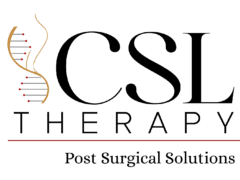Things/Treatments & Skills CSL Therapy does NOT govern, teach, or cover

CSL Therapy: Navigating Scope and Boundaries for Enhanced Aesthetic and Surgical Care
At the heart of CSL Therapy Organization lies a mission to bridge the divide between aesthetic and surgical care, striving to elevate standards and provide better medical solutions for clients and stakeholders within the general public. Our commitment to enhancing practices in body altering aesthetics is steadfast, yet it’s important to clarify the delineations within our scope of practice. There exist numerous treatments and services that, while potentially connected to body alteration, fall outside the governance of CSL Therapy.
1. Allopathic Medical/Surgical Procedures
CSL Therapy’s focus revolves around non-invasive or minimally invasive aesthetic procedures, and we abstain from overseeing or permitting practices linked to allopathic medical or surgical procedures.
2. Physically Invasive Modalities
Intrusive treatments such as intra-anal or intra-vaginal modalities, ear candles, or any methods involving physical invasion are not governed within CSL Therapy’s regulatory framework.
3. Chiropractic/Osteopathic Practices
Modalities requiring chiropractic or osteopathic techniques, including thrust-oriented or ballistic methods, necessitate additional licensure or certification beyond CSL Therapy’s jurisdiction.
4. Prescription of Pharmaceuticals and Hypnosis
CSL Therapy refrains from authorizing or regulating the prescription of pharmaceuticals or practices such as hypnosis, as these areas fall under distinct professional realms.
5. Facial Injectables, Hyaluron Pens, and Gluteal Injections
While encompassing the domain of aesthetics, facial injectables, hyaluron pens, or gluteal injections traditionally performed by nurses are not regulated within CSL Therapy’s purview. These procedures typically fall under the governance of other regulatory bodies.
6. Energy Work, Aura Techniques, and Fire Cupping
Modalities involving energy work not employing “professional therapeutic touch,” aura techniques, or fire cupping lie outside CSL Therapy’s regulated practices.
7. Breast Massage Not for Medical Procedures
Breast massage not part of medical procedures or prescribed by a physician isn’t included or regulated by CSL Therapy unless related to specific medical contexts such as oncology or breast augmentation/reduction procedures.
8. Moxibustion, Tantric, and Ayurvedic Modalities
Practices such as moxibustion, tantric, or ayurvedic modalities, including those with sexual inclinations, are beyond the regulated scope of CSL Therapy.
9. Tongue Reading and Erroneous Modality Titles
Services like tongue reading and misleadingly titled treatments that lack clarity regarding the modality offered aren’t covered or regulated by CSL Therapy.
10. Compliance with Other Regulatory Bodies
CSL Therapy ensures compliance with established regulatory bodies for services and treatments already governed by other entities. Such treatments adhere to the guidelines and standards set by their respective regulatory entities.
Conclusion
In navigating the nuanced territories of body altering aesthetics, CSL Therapy Organization stands committed to fostering a bridge between aesthetic and surgical care. Our pursuit of elevating standards, providing superior medicine, and ensuring optimal practices for our clients and stakeholders remains unwavering.
Recognizing the clear boundaries within our scope is not just about acknowledging limitations; it’s about steering the course for responsible and ethical care. By detailing what falls outside our governance, we encourage transparency, safety, and adherence to regulatory guidelines.
Our focus extends beyond mere oversight; it’s a pledge to uphold integrity, efficacy, and ethical conduct within the evolving landscape of body altering aesthetics. Through this understanding, we empower clients to make informed choices, inspire professionals to deliver excellence, and contribute to the advancement of responsible practices in this dynamic field.
At CSL Therapy, our commitment is not just about the parameters we set; it’s about fostering a culture of conscientious care, where boundaries serve as guides to safe, ethical, and innovative practices, ensuring the well-being and trust of all involved.
